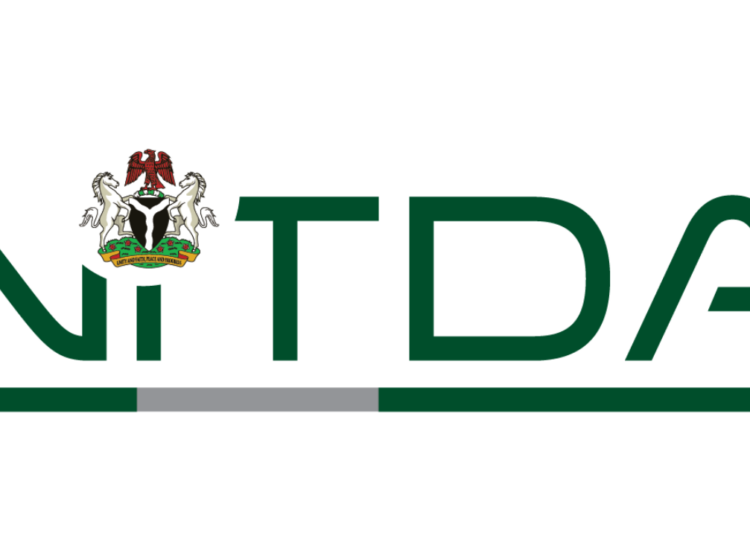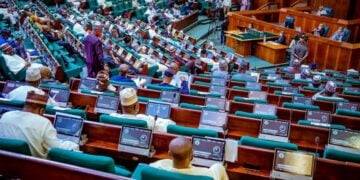The National Information Technology Development Agency (NITDA) appears to have intensified its quest to place Nigeria among the most valuable digital nations as it ramps up efforts to boost the nation’s economy through digital technology.
The Director General of NITDA, Kashifu Inuwa is optimistic that investment in the sector will transform Nigeria’s critical sectors especially as its Strategic Roadmap and Action Plan (SRAP) fully backed by President Bola Tinubu, will ensure digital revolution in Nigeria and boost investment in the economy.
Recently, the agency signed a Memorandum of Understanding with CISCO System Incorporation, a leading ICT firm to develop sustainable, secure and inclusive communities powered by ethical and innovative technology solutions to unlock the value of digitization in Nigeria and drive inclusive growth.
The agreement between NITDA and CISCO is to accelerate national digitization agenda by implementing pilot projects in five key areas, namely; Repurposing NCAIR to create an AI and Cyber security Experience and Incubation Center; Establishing a Broadband Innovation Centre; Setting up Smart Agriculture Demo Farm; Designing and Deploying Learning Hubs and Incubating Defense Technology solutions.
Then just last Wednesday, the NITDA boss, during a media parley in Abuja, noted that President Bola Tinubu has set his eight priority areas in the digital sector to reform the economy and deliver sustained growth.
President Tinubu, according to the NITDA Boss, wants to strengthen national security for peace and prosperity, boost agriculture to achieve food security, accelerate diversification and unlock other opportunities in these sectors, adding that IT can help the president deliver all these priority areas.
“President Tinubu is loud when it comes to economic reforms and national security, agriculture for food security, enabling environment, accelerating diversification of the economy and many more”, he said.
NITDA had crafted the Strategic Roadmap and Action (SRAP 2024-2027) to demonstrate its commitments to uplifting Nigeria to a special status in the global digital economy by harnessing the potential of innovation and entrepreneurship. Among the 8 strategic pillars is to foster digital literacy and cultivate talent for inclusive growth for all Nigerians.
“To achieve that, we need to promote digital literacy and we have developed the national digital literacy framework which has an ambitious target of achieving 95% digital literacy by 2030. So far, the agency is working on its midterm target of achieving 70% by 2027 even as it is working with the Ministry of Education to review the curriculum across Nigeria’s formal education from nursery to university so that it can infuse digital literacy in the formal education sector.
“By doing that we can empower Nigerians to have digital skills before graduating, we are also conceptualizing other initiatives like we will unveil the Digital Literacy For All initiative for all very soon, which will promote all Nigerians especially those outside the formal education to have access to quality digital content so that they have the knowledge to navigate around digital technology and digital economy.
“We have other initiatives also targeting women, children and people with special needs so that we can help everyone to achieve that 95% digital literacy to help our citizens build their digital fluency on how to use technology,” he added.
And to deepen investment in the sector, the Ministry of Communications, Innovation and Digital Economy under which NITDA falls, has developed five strategic pillars which include; knowledge, policy, infrastructure, innovation, entrepreneurship and capital and lastly trade.
Nigeria has the ambitious quest to overtake India as a leading nation in digital technology especially in ICT where India has distinguished itself and made billions of dollars perhaps higher than any other country in the world.
India made strategic investment in the sector in the last 20 years ago, that is why today almost 25% of the sea level executives in techs are Indians and Indians dominate the global technology ecosystem. It is estimated that by2026, the digital economy will account for 20 per cent or one-fifth of the Indian GDP. India also aims to grow the ICT sector to $1 trillion by 2025.
Nigeria appears more primed to leap forward in the digital economy because it supposedly has more competitive advantage than India, due to its younger population that is tech savvy. Nigeria’s ICT sector has also done great, contributing about 16% to its GDP in 2023 but there are enormous challenges.
While the NITDA’s SRAP and pillars initiated by the Ministry are splendid in their articulation, they can only become realistic if Nigeria will invest more in Research and Development (R&D) components.
It is hard to imagine that only a fraction of the Nigerian and African GDP is dedicated to R&D compared with developed countries of the world. As of 2023, Nigeria committed a meager 0.5% GDP for research R&D, which is grossly insufficient.
In the entire Africa, the GDP commitment to R&D is on average of 1%, while major developed and emerging economies such as China (2.4%), Germany (3.1%), South Korea (4.8%) and the United States (3.5%) have committed much to R&D. Nigeria should emulate these countries.
So, for the future Nigeria needs to invest heavily in research that is why NITDA’s Second Strategic Roadmap to build a robust technology research ecosystem will only make sense after adequate investment has been made.
Therefore, for Nigeria to benefit from the digital economy there must be a follow-up massive investment in ICT infrastructure to build a secure and trusted digital space.





